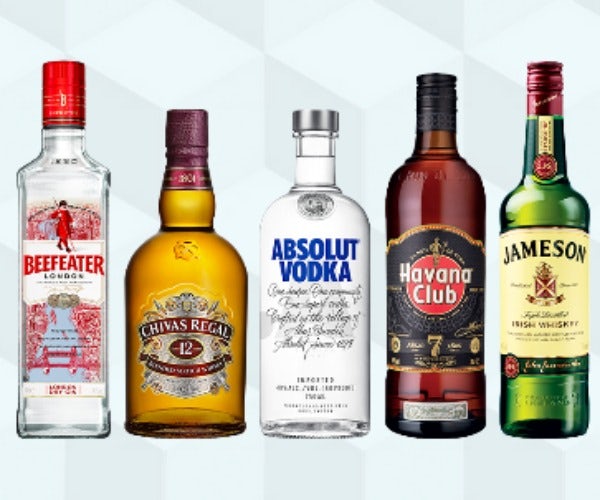Pernod Ricard on why ‘the days of the pure marketer are long gone’
Pernod Ricard marketer Patrick Venning believes all marketers now need a commercial lens and that working on global brands has opened his eyes to the operational/strategic demands of the job.

The days of theoretical marketing are “long gone”, according to Patrick Venning, global marketing director at Pernod Ricard, who instead thinks marketers should always be looking through a commercial lens.
“The days of the purest marketer are long gone. You now need a pragmatic commercial marketing lens on everything,” he says.
This insight is something he gained going from UK marketing director for Pernod Ricard to global marketing director for Ballantine’s at Chivas Brothers – the Scotch whisky arm of the drinks giant.
READ MORE: Pernod Ricard promotes UK marketing boss to global role
He explains: “Working on a brand like Ballantine’s, which isn’t the strongest, allowed me to look at [the brand] through a fresh pair of eyes.
“When you are in a market the balance between operational and strategic is a bit more on the operational side and I think globally its more on the strategic side.”
This difference means that Venning has had to adjust his ideas around innovation. “If you develop something in the UK it can be in market in about three-to-six months and you can see whether its working or not, but when you’re trying to develop things globally it just takes a bit longer,” he explains.
After 13 years in the UK, Venning says he misses the “soap opera” that is the British alcohol market.
“The UK retail scene is a fascinating set of macro dynamics; it’s honestly like a soap opera from the Sainsbury’s, Tesco and Asda discount wars to the independent versus chain dynamic,” he says.
Introducing a brand purpose
However he is clear that his new role is a welcome challenge. Venning has been tasked with developing a brand purpose for Ballantine’s to help market it to a younger audience and propel it to success.
“We’ve grown at 5% for the last three years and the challenge I’ve been given is to now take that to the next level. With a brand that relies upon appreciating cultural relevances, it’s a fascinating challenge to take on,” he explains.
However, he is clearly cautious: “It can take a long time to get momentum but it can be lost in a very short space of time if you’re not careful.”
Brand purpose is one of marketers’ favourite terms at the moment, with brands across sectors desperate to give company’s a meaning beyond their product. Ballantine’s is no difference, with Venning seeing this as key to appealing to younger audiences.
“It’s one of the insights that we all know works for that millennial audience is that they want to buy into brands that are a force for good,” Venning explains.
READ MORE: Why brands need to bring their purpose to life internally, not just externally
Ballantine’s is keen to attract this millennial audience to combat the ageing demographic of whisky drinkers – although Venning is quick to point out that in places like South Africa and Poland the average consumer is much younger.
Venning says: “In some markets like Germany we have an older gentleman franchise which we’re trying to modernise, but then you look at a market like Spain and South Africa where young people are really into drinking whisky you see an opportunity to contemporise a strong brand image.”
Currently the whisky brand has a clear positioning centered around music dubbed “stay true”, but Venning says to expect the launch of a brand purpose this year.
READ MORE: Ballantine’s readies ‘not your run of the mill’ global music platform
“We’ve developed the ‘true music’ activation platform which is working with emerging artists and putting on events in partnership with Boiler Room. But what we’re trying to do now is to take ‘true music’ to the next level and that’s through development of our brand purpose and extending partnerships.
“Music is such a strong, emotional touch point for our consumers in that you can activate it in so many different ways. It’s true that you’ll never own sport or music but what you can try to carve out a distinctive territory for yourself. That’s what we’re trying to do.”
Venning also notes that agency relationships are changing and this is reflected at Ballantine’s. The brand is “gently reshaping” its agency support network, to ensure it is working with the right partners.
As part of that, it has brought more global content creation in-house and now has its own studio, set up 18 months ago but relaunched four months ago, that it is “working more closely with to deliver content”.
“I am a great believer in the rich mix of globally-produced content and locally-produced content and I think [in-housing] helps us operate a healthy balance of the two.”






